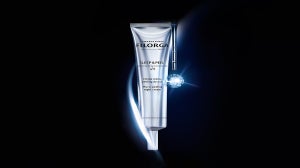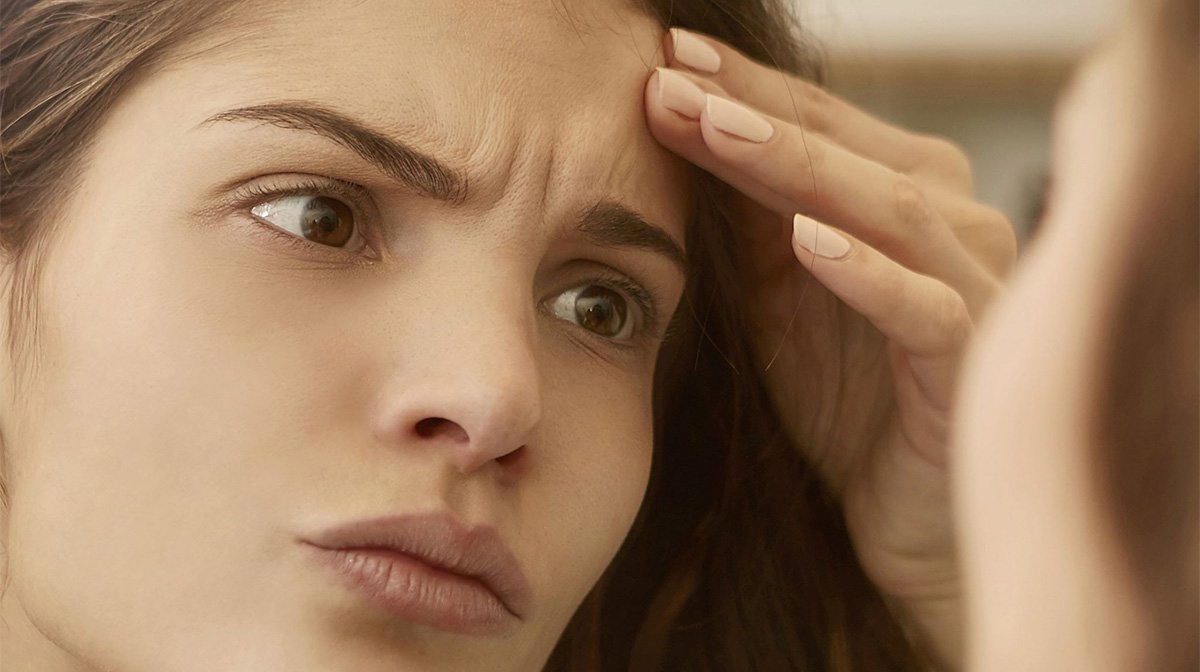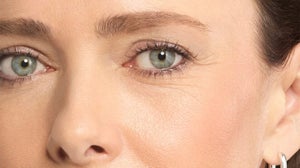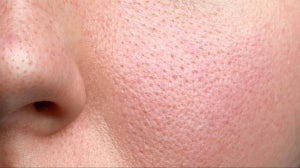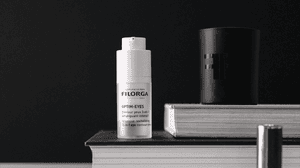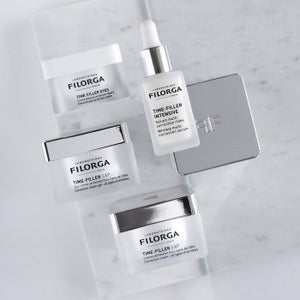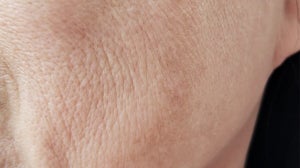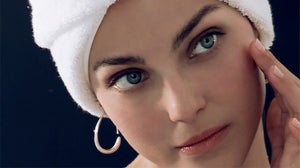
From the age of around 30, the first signs of ageing appear in the form of expression lines. Although part of the natural ageing process of the skin, they are rooted in repeated muscle contractions in the face. This article explains their causes in detail, as well as the various treatments available to avoid and reduce them.
Where do we get expression lines?
There are 5 kinds of expression lines, also known as dynamic wrinkles, and each is linked to a particular facial muscle:
Forehead wrinkles. These horizontal wrinkles occur due to the frontalis, or forehead, muscle.
Crow's feet appear at the outer corner of the eye. They are especially noticeable when we smile or close our eyes tightly, which uses the orbicularis oculi muscle.
Upper lip wrinkles. These tiny vertical wrinkles are caused by the orbicularis oris muscle around the mouth.
Frown lines, or glabellar lines, situated between the eyebrows, are caused by the corrugator supercilii muscles of the eyebrows and the procerus muscle of the nose.
Marionette lines start at the corners of the mouth and extend down towards the chin. They are caused by the depressor anguli oris muscle, which depresses the corner of the mouth.
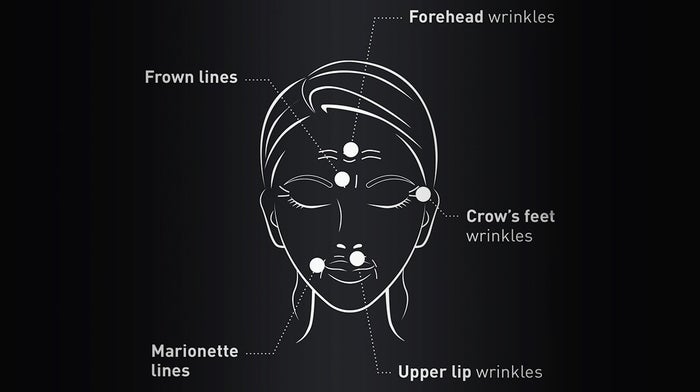
What causes expression lines to appear?
Expression lines appear due to the repeated contraction of the facial muscles described above. When skin is young, it recovers its initial state following these contractions. But with age, skin loses elasticity (link to article on loss of elasticity from October) and has reduced collagen, water, and hyaluronic acid reserves, resulting in lasting wrinkles.
Furthermore, some lifestyle habits can exacerbate expression lines. The sun, for instance, tends to lead to an increase in facial muscle contractions, like squinting or frowning. Smoking also increases the likelihood of wrinkles appearing around the lips because, when you 'drag' on a cigarette, the muscles responsible for depressing the corner of the mouth contract considerably.
How muscles contract
Muscle contraction occurs when a nerve communicates with a muscle via chemical messengers called neurotransmitters. These neurotransmitters, depending on their type, instruct the muscle to contract or remain relaxed.
But nerve-muscle communication is more than just an ON/OFF switch. It is the outcome of a series of complex events that take place in a matter of milliseconds. It's a little like a typical delivery operation: order placement (the brain sends a command) → parcel dispatch (release of neurotransmitters) → shipment (the neurotransmitters act) → delivery (the muscle contracts or relaxes).Interfering with one of these steps alters the action of the muscle in question.
Treatment of expression lines using botulinum toxin and aesthetic medicine
A brief history of the use of botulinum toxin in aesthetic medicine
Produced by the Clostridium botulinum bacterium, botulinum toxin was originally used as a muscle relaxant in the treatment of bladder disorders, muscle spasms, chronic migraines, and strabismus. It can also be used to treat excessive sweating.
Botulinum toxin's cosmetic potential was discovered by accident in the late 1980s. Dr Jean Carruthers, an ophthalmologist, noticed an improvement in the appearance of wrinkles around the eye of a patient she was treating for orbicular spasms. She then continued her research with her husband, dermatologist Dr Alastair Carruthers. The administration of botulinum toxin for cosmetic purposes went on to become a major trend in the United States before spreading to the rest of the world.
Botulinum toxin microinjections
As already mentioned, to prevent the development of expression lines, one must be able to block or reduce the muscle contractions responsible for their formation.
The treatment currently favoured in aesthetic medicine is botulinum toxin microinjections. When used as a preventive measure, microinjections have the benefit of containing a lower concentration of active ingredients than standard injections and producing a more natural result. They can also be administered before summer, for example, to prevent the facial muscles from contracting due to bright sunlight. Results are apparent immediately after the injection, and the full effects are visible 2 to 5 days later. These then last for around 6 months before the muscle regains its ability to contract.
The type A botulinum toxin used in aesthetic medicine is an enzyme that affects the second step in muscle contraction: it blocks the nerve-muscle communication system and neurotransmitters, which in turn prevents contraction. The muscles stay relaxed, so wrinkles fade or do not form at all.
Discover our latest innovation, an anti-ageing skin care product specially dedicated to correcting expression lines: TIME-FILLER SHOT 5XP

Related Articles
